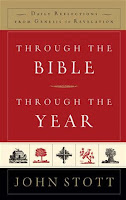The Monarchy
The establishment of Israel's monarchy is recorded in 1 Samuel 8. It is clear that monarchy arises from a dual agency: the will of the people who demand it and the will of the LORD God who consents to it. Indeed, kingship was already envisioned and foretold in Deuteronomy 17:14-20, in a passage that scholars often refer to as the "Law of the King:"
You may appoint a king over you, whom the Lord your God will choose. One from among your brothers shall you set as a king over you....But he shall not multiply horses to himself....Neither shall he multiply wives to himself....Neither shall he multiply to himself silver and gold...and he shall write himself a copy of this Law [torah]... to keep all the words of this Law and these statues to do them, that his thought not be lifted above his brother ...to the end that he may prolong his days in his kingdom.
The king is forbidden to amass large quantities of horses (i.e. instruments of large standing armies), wives (i.e. compromising alliances and palace intrigue, of which wives are an instrument) and gold (i.e. a regime of heavy taxation and conquest). These three proscriptions are really one: to prevent the way of life that is characteristic of the great imperial states from which Israel has been and will be redeemed. It is a law designed to create what we might call a
limited state. Just as the dietary and purity laws impose moderation on the lives of the ordinary Israelite, the "Law of the King" imposes moderation on the life of the king and his administration.
Though Solomon violates all three statutes to kings, David is known for violating only one, the one pertaining to many wives. The biblical narrative names eight such wives, of which the episode pertaining to his adultery with Bathsheba is the centerpiece (2 Sam 11-12). The book of Samuel devotes two chapters to this episode, a rather large amount of material considering, by modern standards, this was a mere"private" sin. Private sin yes, but with wide ranging public consequences that haunt him and the country all the way to the end of his reign - and beyond. As John Stott reminds us, David broke four other commandments when he violated this one: beginning with covetousness, then theft and bearing false witness, and finally murder.
Even though David famously repents after Nathan's parabolic rebuke (see Psalm 51), God announces judgement: "I will bring against you evil from within your own house" (2 Samuel 12:11). And indeed, David's appetite for women infects his sons. Amnon rapes his half-sister Tamar and Absalom sleeps with his father's wives. Amnon dies too early to know where his sin will lead, but with Absalom both bloodshed and treason are mixed in with his inability to constrain his sexual urges. In the end, David leaves his succession in shambles between warring wives and siblings. The biblical narrative leads us to believe that none of this would have happened if David had the self-possession to love and be loyal to one woman.
The image of Eden still shines through the tragedy of the biblical narrative and the divine standard of faithful nuptial love remains clear through its violation. Indeed, the life and love of David's great grandparents recorded in the book of Ruth is a stinging rebuke to his marital infidelity, its interpersonal destructiveness and the abiding effect on Israel's national character.






 It is an amazing development. I am grateful to the Lord and will keep this dear man of God in my daily prayers. See the following story:
It is an amazing development. I am grateful to the Lord and will keep this dear man of God in my daily prayers. See the following story:
